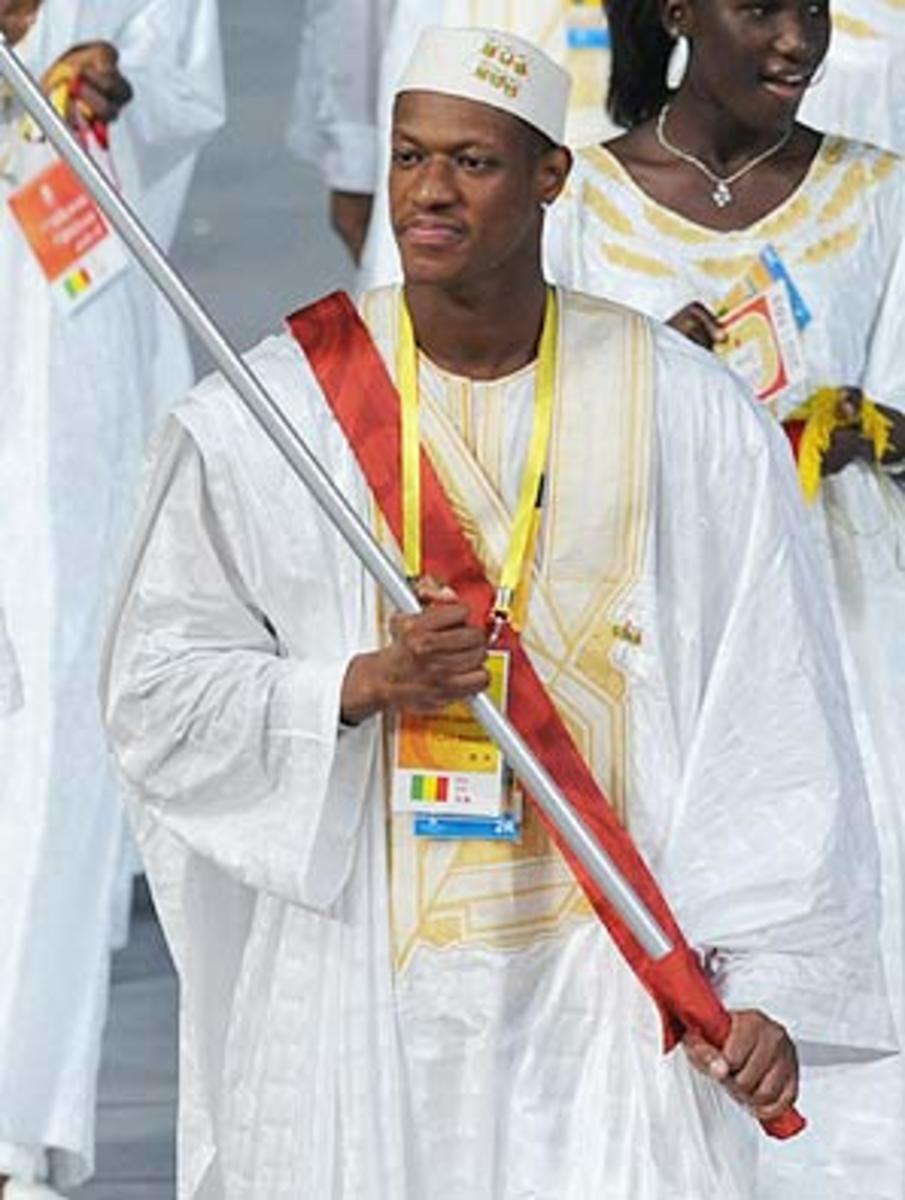Keita eyes Mali's first gold medal
Daba Modibo Keita is crying and I want to know why. The tears start flowing after I have asked his older brother and manager, Badra, what he wants the world to know about Keita, the 27-year-old heavyweight who won a gold medal at the 2007 World Taekwondo Championships in Beijing and is poised to win Mali's first gold medal.
"Can you ask Keita what he is feeling right now?" I ask. "What makes him cry?"
His coach Jorge F. Ramos exhales and shakes his head. "I cannot explain it to you," he said. "It was so hard to get here. Modibo has become an example for all African kids about life's difficulty. He is proving to them that it is possible to succeed with a lot of work and sacrifice."
Over the past week Ramos had told me much of Keita's story. Eight years ago Keita and his family escaped civil war in his native Ivory Coast. They landed in Mali. Four years ago he was still training -- as all Malians do -- on the street. No mats, no equipment, no protection. On Saturday, after most Olympic medals have already been awarded, his Taekwondo competition will begin. Keita faces Mickael Justin Borat in the opening round (11:30 p.m. EST, Friday) of the men's 80kg class. The semifinals (6:30 a.m. EST Saturday) and finals (8:15 a.m. EST) will be contested the same day. "In the same tournament you have the Asian champion, the European champion, the Olympic champion, the Olympic silver medalist, and of course, the world champion," said Ramos. "It will be a very open tournament."
Keita has helped Taekwondo explode in Mali, the seventh-largest country in Africa but one of world's poorest. "Winning the world title was almost unthinkable for an African, or someone from a developing nation," Keita recently told Olympics.org. "I know the whole of Mali is hoping and praying Modibo brings back the first Olympic gold medal in its history.
Last year Keita and Ramos barely raised enough money to come to Beijing for the World Championships. They could not afford to stay at the organizational hotel, so Ramos reached out to a friend who managed a hotel in the Changping district. The friend allowed the duo to stay at half price. "We trained in the public garden every morning," Ramos said. "Everyone thought we were crazy."
Though Keita tore a back muscle during the event, he persevered to become the first taekwondo world champion from Africa. He was also chosen as the recipient of the Samsung Blue Passion Award at the World Championships, the tournament's equivalent to an MVP award. It was there Ramos told him, "We have reached the end of the road. Now we begin to climb the mountain."
How did Keita morph from a street fighter to a world champion in just four years? "When we started, everybody thought that I was crazy because I saw this 220-pound guy who used to play basketball," said Ramos. "I said, "He's a heavyweight but I want him to move like a featherweight." People used to laugh and say, "You are insane because it's almost impossible to have this guy do these things." But we thought to the contrary and we did it."
In 2006 Keita won an IOC Olympic Solidarity Scholarship which allowed him to train at a world-class facility with Ivory Coast fighter Patrice Remarck. That gave Keita the chance to train under the same conditions as other fighters. "For any athlete the Olympic Games is a dream," Keita said. "It's the highest summit in sport. I've already won something just by going to the Games ... Because Africa really needs this medal."
Before he left for Beijing, Ramos told Keita, "Now we go to Everest." For most athletes, winning a gold medal means scaling the highest summit in their sport. For Keita, even if he does win Mali's first Olympic gold medal, his scholarship will lapse after these Olympics. He will have to climb the mountain again. Keita can reapply for his scholarship but not until 2010. "We will continue on, as we always do," Ramos said. "We will find a way. There is a whole country that became Taekwondo-crazy because of him. This is a very poor country. People need to have hope. It's not just Mali, it's Africa. Wherever you go in Africa, they will talk about Modibo."






